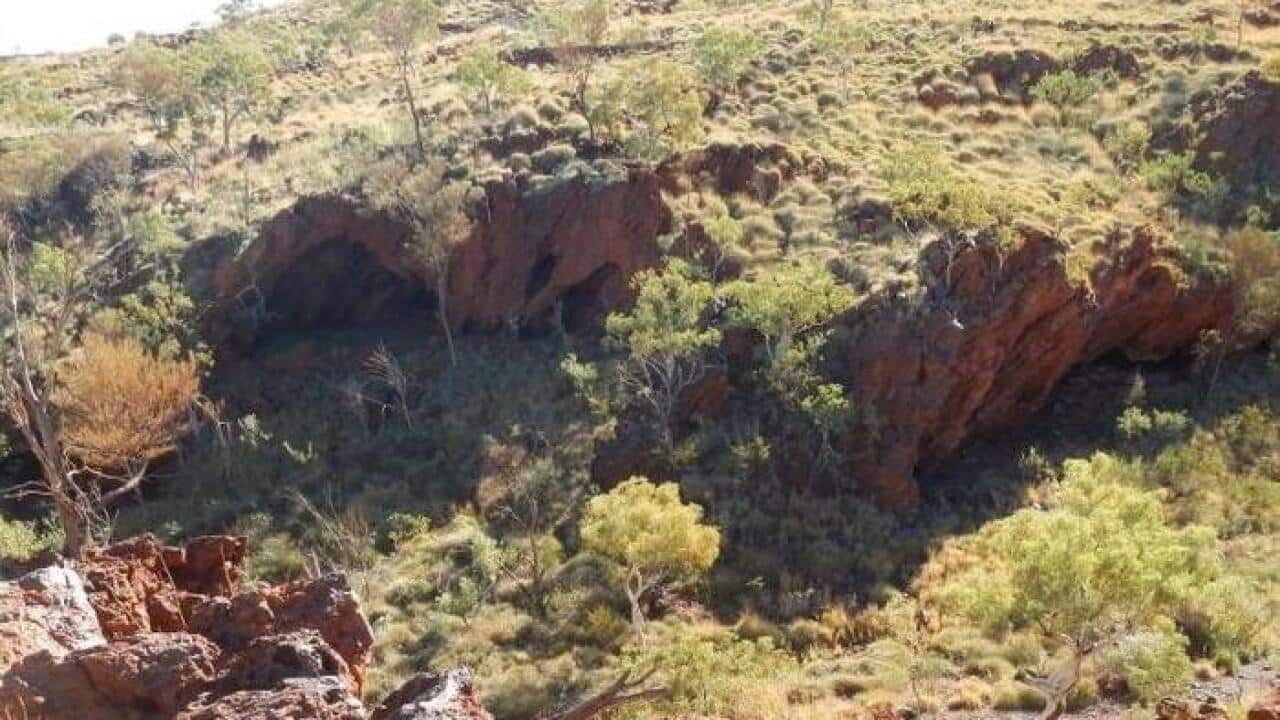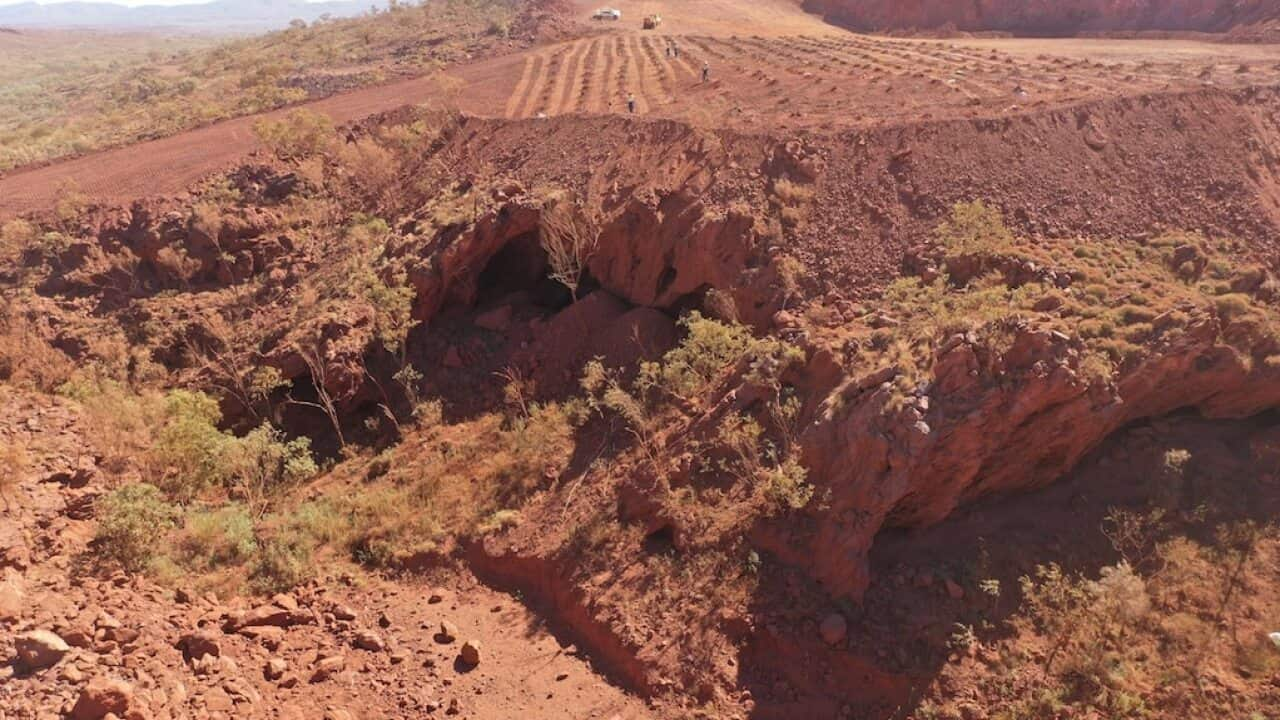Traditional Owners in Western Australia's Pilbara region are investigating damage to an Aboriginal heritage site at a BHP iron ore mine.
The rock shelter, a registered heritage site on Banjima country, was disrupted by a rockfall which was identified by BHP at its Mining Area C operations in late January.
It is not yet known whether mining activity caused the disturbance.
BHP advised Banjima Traditional Owners of the incident and agreed to launch a joint investigation to determine the cause of the disruption.
In a statement on Tuesday, BHP's Edgar Basto said the site was subject to a Section 18 approval allowing it to be disturbed, but was not part of current mining operations.
"The heritage site was first recorded in 2005 with the Traditional Owners of the land, the Banjima," said Mr Basto said.
"The site does not contain rock art or archaeological deposits, and could not be dated.
"We are committed to learning from the outcomes of the joint investigation. The relationships we hold with the traditional custodians of the land on which we operate are critically important to BHP."
Mr Basto, who is the company's Australian minerals president, said BHP had built a strong relationship with the Banjima people and would continue to work with them "in a spirit of respect and cooperation".
A spokesman for the Banjima Native Title Aboriginal Corporation said Banjima's South Flank Heritage committee had met with BHP executives on February 11 "to clarify the initial report's details and progress of the investigation".
WA's government last year granted BHP approval to blast 40 significant Indigenous sites to expand its $4.5 billion South Flank iron ore project.
BHP has since established a heritage advisory council allowing senior staff to consult directly with representatives of the Banjima people.
The global miner has promised not to act on any existing Section 18 approvals for disruption of Aboriginal sites without extensive consultation with Traditional Owners.
Fellow mining giant Rio Tinto faced global condemnation last year after blowing up the 46,000-year-old Juukan Gorge rock shelters in the Pilbara to extract $188 million worth of high-grade iron ore.
The incident devastated the Traditional Owners, the Puutu Kunti Kurrama and Pinikura people, and prompted enormous investor backlash, a scathing parliamentary inquiry and the resignation of Rio's CEO and two other executives.
Here's where else you can find SBS News content and follow us:
SBS also publishes news in 68 languages online and on radio. Find your language at and specific health information about COVID-19 at



